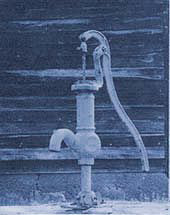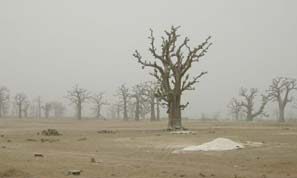
home
methodology
& outputs
© University of Newcastle upon Tyne
 Second order water scarcity in Southern Africa
Second order water scarcity in Southern Africa
The DFID Engineering KaR Programme: Proposal W1-17, 2002-2007
WaterScarcity.org
This website at http://www.WaterScarcity.org is run under the aegis of the primary partner at Newcastle University to keep all contributors and agents up to date.
 Central Thesis of the Water Project
Central Thesis of the Water Project
Water is the object of competitions among many social actors. These competitions occur over several scales embedded in one another, among formal and informal actors, among customary and “modern” actors, and among actors of various nationalities, language or ethnic groups. Moreover, these competitions are embedded within other competitions and conflicts that concern stakes other than water.
Competitions
Very little is known about the strategies local actors in Southern Africa deploy and about the competitions, the cooperations and conflicts which they are entering concerning water. The interface between customary institutions and formal institutions is very poorly known. This means that the water law put out by the national government rarely corresponds to the law and regulations implemented on the ground, locally. It means that many institutions that do not appear in any government document concerning water management, actually play a crucial role in determining water access, water use and water allocation.
These competitions have generated second order water scarcity in Southern Africa, i.e.,
a lack of social and political adaptive capacity to manage water successfully to the
satisfaction of all stakeholders. The paucity of knowledge concerning this web of power
relations, within which control over water is embedded, has prevented social actors involved
in water development from improving their strategies in order to reduce this second order
water scarcity. Instead water development projects have kept focusing on first order water
scarcity, i.e., the lack of resource itself. Most often, these developments have had limited
effect because of the rampant second order scarcity.
Research
This research will investigate the web of power relations surrounding water access, water use and water allocation. It will identify the relations of cooperation, competition and conflict existing among the various actors that deploy their strategies over a local scale, a national scale or a global scale.
 The relations of cooperation identified can be perceived as an asset that can be built on in order to develop successful water management. The relations of competition can be perceived as crucial interactions that can be changed into occasions of cooperation. Finally, the conflict relations can be downscaled into competitions.
The relations of cooperation identified can be perceived as an asset that can be built on in order to develop successful water management. The relations of competition can be perceived as crucial interactions that can be changed into occasions of cooperation. Finally, the conflict relations can be downscaled into competitions.
The methodology page gives access to resource documents, presentations etc as they appear, while the newsletter page provides regular updates on the progress of the project.